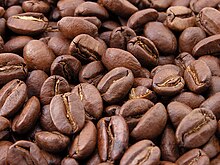The coffee industry, known for its rich history and tradition, is experiencing a digital transformation driven by Information Technology (IT) systems. These systems are enhancing various aspects of the coffee supply chain, from cultivation and processing to distribution and customer experience. As technology continues to evolve, the coffee industry is leveraging IT solutions to improve efficiency, sustainability, and customer engagement. In this article, we explore the role of IT systems in the coffee industry and how they are reshaping the way coffee is produced, processed, and consumed.
1. IT Systems in Coffee Farming and Agriculture
Coffee production begins with the farmers, and modern IT systems are helping them improve yields, reduce costs, and promote sustainable practices. Here’s how IT is transforming the farming process:
- Farm Management Software: Modern farm management systems help coffee farmers track and manage their crops more efficiently. These software tools allow farmers to monitor soil health, weather patterns, irrigation schedules, and crop growth. By gathering and analyzing data, farmers can make informed decisions that lead to better yields, optimized resource use, and reduced waste.
- Precision Agriculture: IT systems are enabling precision agriculture techniques, which use sensors, GPS, and data analytics to optimize farming practices. These technologies help farmers apply fertilizers, water, and pesticides more effectively, reducing their environmental impact and increasing productivity.
- Sustainability Monitoring: Coffee production is facing increasing pressure to be environmentally responsible. IT systems can track the sustainability of farming practices, monitor carbon footprints, and manage certifications like organic or fair trade. This ensures that coffee producers meet sustainability standards and that consumers are informed about the ethical practices behind their coffee.
2. IT Systems in Coffee Processing
Once coffee beans are harvested, they undergo processing, which is critical to maintaining quality. IT systems are playing a key role in this stage by optimizing processes and ensuring consistency.
- Processing Monitoring Software: Coffee processing involves various stages, including washing, drying, and roasting. IT systems can monitor these processes in real-time, collecting data on temperature, humidity, and processing time to ensure optimal conditions. This helps maintain the quality of the coffee and reduces the risk of defects or spoilage.
- Automation in Processing: Automation, driven by IT systems, is being increasingly used in coffee processing plants to streamline operations. Machines that control roasting times, grind sizes, and packaging processes are now managed by sophisticated software, improving speed, consistency, and quality.
- Quality Control Systems: IT systems are used to track quality control during the processing stages. By collecting data on factors like bean size, moisture content, and flavor profiles, software systems help producers ensure that only the highest quality beans make it to market.
3. IT Systems in the Coffee Supply Chain
The coffee supply chain is complex, involving numerous stakeholders from farmers to distributors. IT systems help to manage this supply chain more effectively by improving traceability, communication, and logistics.
- Supply Chain Management (SCM) Software: SCM software is essential in managing the movement of coffee beans from farms to roasters and distributors. These systems track inventory, optimize transportation routes, and provide real-time updates on shipments. This improves efficiency, reduces waste, and ensures timely delivery of coffee products.
- Blockchain for Traceability: Blockchain technology is gaining popularity in the coffee industry for ensuring transparency and traceability. By using blockchain, companies can trace coffee beans from farm to cup, providing consumers with information about the origin, quality, and sustainability of their coffee. This enhances trust in the supply chain and supports fair trade practices.
- Logistics Optimization: IT systems play a critical role in optimizing logistics for coffee companies. From inventory management to route optimization for shipments, logistics software helps companies reduce costs and improve delivery times. This is especially important for businesses dealing with perishable goods like coffee, which need to be transported quickly and efficiently.
4. IT Systems in Coffee Roasting and Production
After the beans are harvested and processed, they are roasted, which is a crucial step in determining the flavor and quality of the coffee. IT systems help roasters optimize this process.
- Roasting Software: Modern roasting machines are equipped with IT systems that control temperature, time, and airflow to ensure consistency in roasting. Roasting software allows roasters to program specific profiles for different types of coffee beans and track the progress of each batch in real-time. This results in better control over the final flavor profile and consistency across batches.
- Data-Driven Roasting Techniques: IT systems collect data on each roast, including variables such as temperature fluctuations and roast times. By analyzing this data, roasters can fine-tune their processes and improve the flavor profile of their coffee. This data-driven approach leads to higher-quality products and a more efficient roasting operation.
5. IT Systems in Coffee Retail and Consumer Experience
In the consumer-facing side of the coffee industry, IT systems are enhancing the way coffee is sold and consumed, providing a more personalized and efficient experience for customers.
- Point of Sale (POS) Systems: Coffee shops and retail outlets use POS software to streamline sales and inventory management. These systems track sales, manage customer preferences, and handle payments, improving the customer experience and operational efficiency.
- Customer Relationship Management (CRM) Systems: CRM systems help coffee companies build relationships with their customers by tracking their preferences, order histories, and feedback. This data allows coffee businesses to offer personalized promotions, improve loyalty programs, and tailor their offerings to meet consumer demand.
- Mobile Apps and Online Ordering: Many coffee companies now offer mobile apps that allow customers to order and pay for their coffee in advance. These apps often include features such as loyalty rewards, personalized recommendations, and real-time tracking of orders. Online ordering systems help coffee businesses reach a larger customer base and improve convenience.
- E-commerce and Direct-to-Consumer Sales: IT systems enable coffee companies to sell their products online through e-commerce platforms. By integrating online stores with inventory management systems and fulfillment operations, businesses can offer direct-to-consumer sales, providing greater control over their brand and customer experience.
6. The Future of IT in the Coffee Industry
As the coffee industry continues to embrace digital transformation, the role of IT systems will only expand. Future developments may include the use of artificial intelligence (AI) and machine learning to predict trends, automate processes, and further optimize the supply chain. Additionally, the rise of smart coffee machines and IoT-enabled devices in homes and cafes will provide consumers with more personalized and connected coffee experiences.
Furthermore, IT systems will continue to play a crucial role in ensuring sustainability within the coffee industry. From improving traceability to reducing waste and optimizing energy usage in roasting plants, technology will help the coffee industry become more environmentally responsible and efficient.
Conclusion
IT systems are fundamentally transforming the coffee industry at every stage of the value chain—from farming and processing to roasting, distribution, and retail. These technologies are helping coffee producers improve quality, reduce costs, and engage more effectively with consumers. As digital tools continue to evolve, the coffee industry will likely become even more efficient, sustainable, and customer-centric, creating new opportunities for businesses and enhancing the coffee experience for consumers worldwide.



0 Comments